If you want to help people who struggle with addiction, a career as a substance abuse counselor may be the right fit for you.
According to the National Survey on Drug Use and Health published in 2018, approximately 19.7 million Americans aged 12 and older have a substance use disorder.
There is a great demand for substance abuse counselors that help prevent and treat addiction.
The Bureau of Labor Statistics estimates that employment for substance abuse, behavioral disorder, and mental health counselors will grow by 22 percent from 2018 to 2028.
If you’re a busy adult who wants to earn a degree in Substance Abuse Counseling, then an online program will give you the option of completing the coursework at your own pace.
Online Bachelors Degree programs in Substance Abuse Counseling are available at many reputable institutions.
To help you decide what school best fits your educational needs, we have compiled a list of Top 20 Online Schools for Bachelors in Substance Abuse Counseling.
This page also includes information about tuition rates, accreditation, coursework, and more.
We invite you to read our list and start applying today.
University of Cincinnati

Enrolling more than 40,000 students, the University of Cincinnati is the second-largest university in Cincinnati.
The school offers over 200 programs at its campuses and online, including a Bachelor of Science in Substance Abuse Counseling.
The fully online program is designed to prepare students for a career in helping people who struggle with addiction.
The curriculum covers topics on Alcoholism, Foundations of Cultural Competence, Ethics in Substance Abuse Counseling, Crisis Management, Basic Pharmacology, Drugs and Behavior, and more.
Resident students pay $5,830 while non-residents pay $6,010 per semester.
The University of Cincinnati is accredited by the Higher Learning Commission.
Official WebsiteGrand Canyon University

With more than 80,000 students enrolled in its online and on-campus programs, Grand Canyon University is the largest Christian University in the globe.
One of the programs offered by Grand Canyon University both online and on-campus is the Bachelor of Science in Counseling with a concentration in Addiction, Chemical Dependency, & Substance Abuse.
The program combines theoretical knowledge and practical courses, emphasizing the role of spirituality in counseling.
The curriculum includes classes in Pharmacology in Treatment of Addiction, Substance Use Disorders, Multicultural Counseling in a Diverse Society Trauma, and Addiction and Substance Use Disorders.
Students enrolled in the online program can complete the courses fully online and need 120 credits for graduation.
Tuition for online programs is $470 per credit.
Grand Canyon University is regionally accredited by The Higher Learning Commission.
Official WebsiteIndiana Wesleyan University
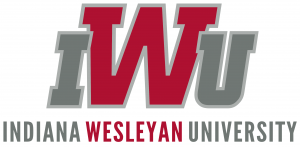
The largest private university in Indiana, Indiana Wesleyan University is offering 90 programs in associate’s, bachelor’s, master’s, and doctoral degree levels.
Its educational offer includes a Bachelor of Science in Addictions Counseling that can be completed fully online in 22 months.
The curriculum covers topics on addictions counseling, psychology, and psychopharmacology.
Students are also required to complete 350 hours of practicum experience in an approved addictions facility.
Tuition is $392 per credit hour.
Indiana Wesleyan University is accredited by the Higher Learning Commission.
Official WebsiteLiberty University

Another great program for those who want to start a career in addiction counseling is the one offered by Liberty University- one of the largest Christian universities in the world.
The university provides 600 programs available on-campus and online and serves more than 100,000 students.
The online Bachelor of Science in Psychology – Addictions, and Recovery focuses on teaching students skills in client intervention and treatment plans.
The curriculum includes classes in Psychological Measurement, Psychology and Christianity, Theory and Treatment of Substance Abuse, and Social Psychology.
The 120-credit program can be completed in 3.5 years.
Liberty University is accredited by the Southern Association of Colleges and Schools Commission on Colleges.
Official WebsiteNorthwestern State University of Louisiana

The Northwestern State University of Louisiana is offering over 50 programs in nursing, business, technology, cultural studies, social studies, biological sciences, education and more.
Its electronic campus includes 40 programs, including a Bachelor of Science Degree in Psychology with a concentration in Substance Abuse.
The fully online program includes classes in counseling, pharmacology in addiction, and diversity issues in psychology.
Students need a total of 120 credit hours to earn the degree.
Undergraduate students who attend the Northwestern State University of Louisiana exclusively online pay $375 per credit hour up to 12 hours and $100 per credit hour thereafter.
Northwestern University is accredited by the Southern Association of Colleges and Schools Commission on Colleges to award associate, baccalaureate, masters, specialists, and doctorate degrees.
Official WebsitePurdue University Global
Purdue University Global offers online programs designed to help working adults finish their higher education and earn a degree in the field of their choice.
The school’s educational offer includes a fully online Bachelor of Science in Psychology-Addictions.
The program covers topics on Pharmacology of Alcohol and Drugs, Clinical Psychology, and Case Management in Clinical Settings.
Students learn how to help their clients maintain sobriety and all the other skills addiction professionals need.
Students are required to complete 180 credits for graduation.
Tuition is $371 per credit hour.
The program is approved by the Association for Addiction Professionals.
Purdue Global is accredited by the Higher Learning Commission.
Official WebsiteThomas University
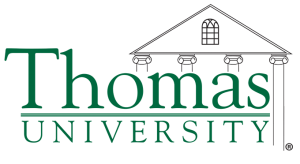
Thomas University is an independent, non-profit university that awards associate, bachelor’s, master’s, doctoral, and specialist degrees.
The school’s Bachelor of Science in Rehabilitation Studies includes three specializations, namely Addictions, Gerontology, and Criminal Justice.
Students enrolled in the Addictions specialization have the option of taking the state examination to become an Associated Licensed Substance Abuse Counselor.
Thomas University is accredited by the Southern Association of Colleges and Schools Commission on Colleges.
Official WebsiteUniversity of North Texas
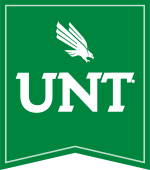
The University of North Texas is a public research university located in Denton that admits over 38,000 students.
The university provides more than 200 academic programs that lead to bachelor’s, master’s, and doctoral degrees.
The Bachelor of Science in Rehabilitation Studies offered through its College of Health and Public Service is available in the classroom and online.
The school’s fully online platform includes a comprehensive curriculum that allows students to complete 30 hours of rehabilitation studies and addictions courses and 12 credits in substance abuse treatment specialization or certificate program.
The University of North Texas is among the 27 universities that have received the highest level of accreditation (Level VI) from the Southern Association of Colleges and Schools Commission on Colleges.
Official WebsiteCity Vision University
Located in Kansas City, Missouri, City Vision University offers undergraduate programs in Addiction Counseling, Nonprofit Management, Business, and Christianity and Ministry.
The school’s Bachelor’s Degree in Addiction Counseling is designed to prepare students for a career as a Certified Addictions Counselor.
The 120-credit hour program includes courses such as Drugs and Abuse, Recovery Dynamics, Counseling Foundation, and Addictions Counseling Certification Preparation.
Undergraduate tuition is $750 per course.
City Vision University is accredited by the Distance Education Accreditation Commission.
Official WebsiteCrown College
Crown College offers an online Bachelor of Science in Alcohol and Drug Counseling designed for students who want to start a career as addiction counselors.
Students enrolled in this program take classes on Statistical Concepts, Abnormal Psychology, Christian Studies, Social Science Research, Methods of Counseling, Theories of Counseling, and Case Management for Alcohol and Drugs Counseling.
The College also offers its online students the opportunity of gaining internship experience designed to prepare them for a career as a Licensed Alcohol and Drug Counselor.
The program qualifies students for counselor jobs without a master’s degree.
Official WebsiteSouthern New Hampshire University
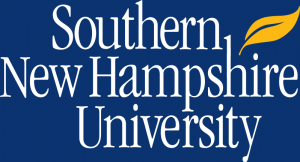
Southern New Hampshire University offers a variety of undergraduate, graduate and certificate programs and enrolls more than 90,000 students.
Students across the nation and the globe attend classes through the school’s online education platform.
The university’s Psychology major offers a specialization in Addiction Studies that teaches future addiction counselors the fundamental aspects of addiction and the social causes of addiction.
The program includes courses in Contemporary Issues in Addiction, Biopsychology, Scientific Investigation, and a writing-intensive capstone.
Tuition for degree/certification programs is $320 per credit hour; U.S. service members and the spouses of those on active duty pay a reduced tuition of $225 per credit hour.
Southern New Hampshire University is accredited by the New England Commission of Higher Education.
Official WebsiteOhio Christian University

Ohio Christian University provides a Bachelor of Arts in Substance Abuse Counseling through its Adult and Online Education platform.
This program prepares students to become licensed in Chemical Dependency Counseling.
Graduates are also prepared to apply to the Ohio Chemical Dependency Professional Board for Certified Chemical Dependency Assistance status.
Students take classes in Diagnostic Evaluation and Personal Assessment, Abnormal Psychology, Chemical Dependency Counseling, Family Dynamics in Substance Abuse, and Spiritual Dimensions of Illness and Recovery.
Tuition for Bachelor’s Degree programs is $416 per credit hour.
The technology fee is $250 per semester.
The university is accredited by the Higher Learning Commission.
Official WebsiteUniversity of South Dakota

The University of South Dakota offers more than 200 programs through its arts and science, education, business, health sciences, law and medicine colleges.
The school’s College of Health Sciences provides a Bachelor of Science in Addiction Studies available for online and on-campus students.
Students can choose between Treatment and Prevention specializations.
The curriculum includes classes such as Fundamental Skills of Individual Counseling for Addiction, Study of Drug Use and Addiction, and Addictive Family Systems and Family Counseling.
Tuition for undergraduate programs is $351.25 per credit hour.
The University of South Dakota is accredited by the Higher Learning Commission and by the National Addiction Studies Accreditation Commission.
Official WebsiteUnion College

Located in the town of Barbourville, Kentucky, Union College delivers programs in a variety of areas, including a Bachelor of Science in Substance Abuse Counseling- offered through its Department of Psychology.
Students have to complete 120 credit hours.
The curriculum covers courses in Abnormal Psychology, Forensic Psychology, Drugs and Society, Advanced Behavioral Neuroscience, Deviance and Criminology, and more.
Tuition is $225 per credit hour.
Union College is accredited by the Southern Association of Colleges and Schools Commission on Colleges to award associate, bachelor, master, and education specialist degrees.
Official WebsiteNew England College

Founded as an institution that delivered higher education to the servicemen and women after World War II, New England College now provides several programs in a variety of areas, including education, management, arts and sciences, natural and social sciences at its Henniker, New Hampshire campus and online.
Among its online programs is the Bachelor of Arts in Psychology with a concentration in Addiction and Substance Abuse- a program that can be completed entirely online.
The curriculum covers courses such as Counseling and Therapy, Understanding Trauma and Addiction, Advanced Topics in Alcohol and Drug Use, and Substance Abuse.
Tuition for Bachelor’s Degree programs is $415 per credit hour.
New England College is accredited by the New England Commission of Higher Education.
Official WebsiteAlvernia University

Alvernia University offers degrees at an undergraduate and graduate level in a variety of fields, including medicine, law, dentistry, pharmacy, and veterinary studies.
The online Bachelor of Arts in Behavioral Health covers topics in the prevention and treatment of addiction, mental health, child welfare, and criminal justice.
Major requirements include Counseling Techniques, Foundation of Addiction, Theories of Counseling/Psychotherapy, Group Techniques, and Crisis Intervention.
Tuition for undergraduate programs is $480 per credit hour.
Alvernia University is accredited by the Middle States Commission of Higher Education.
Official WebsiteAspen University

Founded in 1987, Aspen University is a distance-learning institution accredited by the Distance Education Accrediting Commission.
The school issues associate, bachelor’s, master’s, and doctoral degrees in nursing, technology, business, education, and professional studies.
Its educational offer includes a Bachelor of Arts in Psychology and Addiction Counseling designed to prepare students for a career in addiction counseling.
The program includes 40 courses that start every two weeks.
The curriculum includes courses such as Multicultural Counseling, Substance Abuse in Educational Settings, Social and Behavioral Sciences Choice, Pharmacology, and Substance Abuse Counseling.
Official WebsiteWalden University

Founded in the 1970s by two teachers who created doctoral programs for working adults, Walden University enrolls today more than 49,000 students in its fully online programs.
One of these programs is the Bachelor of Science in Psychology-Addictions.
Students enrolled in this program have to complete 181 quarter credits to finish.
The curriculum covers courses such as Case Management and Addictions, Human Development, Prevention and Treatment of Addiction, and more.
Tuition is $325 per quarter-hour.
Online students also pay a technology fee of $160 per quarter.
Walden University has been accredited by The Higher Learning Commission since 1990.
Official WebsiteDrexel University
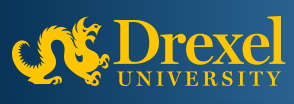
One of the largest private universities in the nation, Drexel University admits about 25,000 students in its over 170 undergraduate, graduate, doctoral and professional programs.
The university also offers a variety of entirely online programs, including a Bachelor of Behavioral Health Counseling.
The program covers topics on treatment planning, group counseling, psychiatric rehabilitation, and recovery-oriented treatment for substance-use disorders.
Students may choose between electives like Addictions Counseling with Special Populations, Preventing Substance Abuse, Psychopharmacology for Counselors, Co-Occurring Disorders, and Case Management Methods.
Students need a total of 135 quarter credits to complete this program.
Drexel’s regular tuition rate is $855.
For the academic year of 2019-2020 students pay a reduced tuition of $513 per credit.
Drexel University is regionally accredited by the Middle States Commission on Higher Education.
Official WebsiteUniversity of Maine

The largest public university in the state of Maine, University of Maine serves close to 5,000 students through its associate’s bachelor’s, certificate, and post-baccalaureate degree programs.
One of its online programs is the Bachelor of Science in Mental Health and Human Services.
Students enrolled in this program can choose between four concentrations, namely Counseling for Substance Use, Models of Addiction, Addiction: Diversity and Rehabilitations, and Adolescence, Substance Abuse & Criminality.
Tuition is $239 per credit hour for Maine residents and $299 per credit hour for out-of-state students who take online classes.
Official WebsiteFrequently Asked Questions
Q. What career options can I pursue with a Bachelor’s Degree in Substance Abuse Counseling?
With a Bachelor’s Degree in Substance Abuse Counseling, you can pursue a variety of career options.
You can choose to become an Addiction Worker and be responsible for providing therapy to an individual or a group who struggles with addiction.
As an Addiction Worker, you will have to create records of patients, track their progress, implement treatment plans and check if the patients remain drug-free.
Other graduates with a Bachelor’s Degree in Substance Abuse Counseling become Chemical Dependency Counselors and help those who are struggling with substance addiction.
Their patients may be addicted to drugs or alcohol.
A Chemical Dependency Counselor helps his or her patients by allowing them to share their experiences, performing drug and alcohol tests and collaborating with family members.
They also implement community programs that educate the public about the effects of chemical dependency.
A career as a Social Worker is another option for those who hold a Bachelor’s Degree in Substance Abuse Counseling.
As a social worker, you may work with individuals who have substance abuse problems and implement activities like crisis intervention, case management, therapy, client advocacy, and prevention.
You may work with physicians and nurses to interview patients, review their records, and monitor their progress.
You can also find employment at a health agency, community program, or private clinic as a Substance Abuse Counselor.
These professionals conduct interviews with potential patients, provide counseling, administer drug tests, and monitor patients’ progress.
A Bachelor’s Degree in Substance Abuse Counseling can open many other career paths, as Guidance Counselor, Corrections Officer, Psychiatric Assistant, Research Assistant, Substance Abuse Case Manager, Substance Abuse Prevention Specialist, Drug Court Manager, or Drug Court Recovery Coordinator/Liaison.
Q. What licensures and certifications I can earn after getting a Bachelor’s in Substance Abuse Counseling?
If you want to pursue a career in Substance Abuse Counseling, a Bachelor’s in Substance Abuse Counseling is only the first step.
Licensure requirements vary by state and if you want to carve a career in this field, you should check your state’s and local policy and requirements that regulate this profession before enrolling at a university.
If you want to become a substance abuse counselor in the state of New York, for instance, you will need 350 clock hours of education and training, including 85 hours of substance and alcohol training, 150 hours or substance abuse counseling and 70 hours of community education, evaluation and case management.
After completing the training requirements you will also need to pass a written exam via computer at ISO Quality testing centers.
Q. Should I establish my own counseling clinic or work for a healthcare facility or private practice?
Before deciding to find employment or establish your own clinic there are a few things you should consider.
First of all, starting your own practice requires a business license and an in-depth understanding of state and local laws.
You will also have to market your business, work with insurance companies and pay for expenses such as leasing space, furnishing the offices, office supplies, utilities and so on.
If you’re a fresh graduate, you may have to meet a specific set of requirements before starting your own private practice.
You will need a few years of clinical experience in the field, you will have to pass some state exams, complete a few hours of supervised experience and acquire a license.
If you’re willing to make an effort, there are many career options open to you after completing a Bachelor’s Degree program in Substance Abuse Counseling.
Final Thoughts
If you’re a compassionate person who wants to help others, a career as a substance abuse counselor will give you the chance of assisting people who struggle with addiction in the process of getting their lives back on track.
If you already have a full-time job, you should consider enrolling at a program that allows you to complete the coursework at your own pace.
There are many reputable schools that offer online Bachelor’s Degree programs in Substance Abuse Counseling, designed for students just like you.
If you’ve read our list, we encourage you to continue your research and apply for the program that best meets your budget, professional aspirations, and educational needs.
